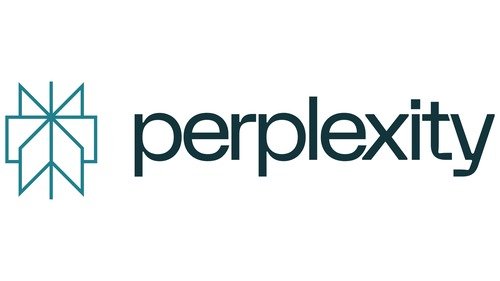
In a notable development, Perplexity AI has emerged as a growing rival in the AI-powered search and assistant market. As a result, it has called out that Cloudflare is blocking what it describes as “legitimate AI traffic,” limiting fair AI access.” Perplexity claims that Cloudflare’s security protocols are wrongly classifying helpful AI bots—such as its assistant—as destructive or abusive, resulting in extensive access troubles. Hence, this situation highlights necessary concerns for the evolution of AI-driven web navigation, online access, and so on.
Perplexity AI has just stated that Cloudflare, a widely used web security and CDN provider, is also obstructing its access to publicly available websites, labelling it as a bot and effectively cutting it off from comprehensive aspects of the internet. These circumstances have sparked a broader discussion about AI accessibility, bot security, and who controls the flow of data on the contemporary web.
Cloudflare Is Blocking Perplexity AI, How?
Perplexity AI is an AI-powered research assistant and search engine that incorporates natural language processing with real-time data retrieval. Traditional language models like ChatGPT often rely on static knowledge or limited web access, but our model actively delivers more versatility. In addition, perplexity browses the web in real-time, dragging information from live sources to generate more informative data, citation-rich responses
Use cases include:
- Summarizing academic articles
- Generating up-to-date news reports
- Conducting deep-dive research using public sources
- Providing real-time answers with sources
To achieve this, Perplexity’s backend includes automated browsing agents—essentially AI bots—that access publicly available websites and extract content in real-time.
What Is Cloudflare and Why Is It Blocking AI Bots?
Cloudflare is a web infrastructure and security company used by millions of websites worldwide. Its services include:
- Content Delivery Network (CDN)
- DDoS mitigation
- Web Application Firewall (WAF)
- Bot detection and management
Cloudflare builds its bot protection system to identify good bots from bad ones. Good bots might include search engine crawlers like Googlebot or Bingbot. Bad bots include content scrapers stealing IP, automated spammers, credential-stuffing attackers, and DDoS participants. Perplexity’s claim is that Cloudflare is lumping it in with bad bots, automatically blocking its AI browsing agents from accessing Cloudflare-protected content—even though the sites in question are publicly available.
What’s Happening, Exactly?
According to Perplexity, when their AI assistant attempts to fetch or summarize live content, Cloudflare is triggering bot detection systems and either rate-limiting or outright blocking access. This results in broken links in search results, partial or missing citations, and inaccurate or outdated answers if Perplexity is forced to rely on cached content.
Why This Is Noteworthy
This isn’t just a technical problem
- It’s about the future of open access, the role of AI,
- For the ones who control information distribution.
- AI Assistants Rely on Access Without open web access, real-time AI tools like Perplexity lose their core advantage. This limits innovation in AI-powered search, education, and productivity.
- Content Availability Is Now Behind a Security Wall If Cloudflare and similar services block AI bots, a huge portion of the public web becomes inaccessible—even though it’s technically “open.”
- It Affects End-User Trust Users expect modern AI assistants to be accurate and comprehensive. But if large parts of the internet are blocked, answers become patchy, trust erodes, and the entire value proposition of real-time AI breaks down.
The Core Conflict:
AI vs. Web Infrastructure Perspective: Concerns, Perplexity & AI Developers Seeking Steadfast Access to Public Content for Model Training and User Service.
Cloudflare & Web Host: Prevent abuse from hostile bots that scrape or overload servers. Website Owners Strive for control over how their content is utilised, monetised, or republished. Users expect AI gears to be comprehensive and real-time. Therefore, it is not a straightforward case of “right vs. wrong”. Both sides have reasonable concerns, and no universal means currently exist for managing AI crawlers and assistants at scale.
What Could Be Done?
- Transparent Bot Identity AI bots like Perplexity’s agents could register clear, identifiable user-agent strings—similar to Googlebot—so websites can differentiate good actors from bad.
- AI Access APIs Website owners could offer controlled API access to AI tools, allowing data retrieval within agreed-upon limits (e.g., rate limits, content restrictions).
- AI Bot Registries Cloudflare could create an “AI bot whitelist registry”—a system where trusted bots can apply for verified access, with rate limits and compliance built in.
- New AI-Web Access Protocols This incident might accelerate the development of standard protocols for AI web access—an equivalent of “robots.txt for AI” with modern guardrails.
The Risks of Overblocking Cloudflare’s aggressive stance—while understandable—could have unintended consequences:
- AI assistants give up on browsing and revert to outdated, static models.
- Smaller AI startups are stifled, lacking the scale to negotiate access or build partnerships.
- Users suffer from degraded performance, fewer citations, and broken tools.
In the long run, this could fragment the web into “AI-accessible” and “AI-walled” zones—counter to the open, interconnected nature the web was originally built on.
The Road Ahead:
Dialogue, Not Blacklists We’re at a crossroads where AI development and web infrastructure must collaborate, not collide. Perplexity’s challenge to Cloudflare signals that we urgently need better systems, clearer policies, and open standards.
For AI developers:
Clarity, compliance, and honest usage must be paramount.
For Cloudflare:
Flexibility and exposure to developing access models are key.
For regulators and the public: Awareness of how web access rules affect knowledge, innovation, and trust in AI is essential.
Conclusion:
Cloudflare is blocking Perplexity, but the issue runs deeper—it’s about AI’s right to browse the open web. It’s a glimpse into the next frontier of the internet, where AI becomes a primary interface—and the old rules around crawling, content, and security no longer fit.
 At Revolute X Digital, we believe that better systems, more transparent policies, and open standards are paramount to strike a balance between protecting websites and allowing AI innovation. Our dedicated team helps in developing clear strategies and solutions that ensure your AI tools access necessary data without being blocked by security systems like Cloudflare’s. If you’re facing similar challenges or want to optimize your AI’s web access, you can lean on us for tailored guidance and technical support. Contact us today!
At Revolute X Digital, we believe that better systems, more transparent policies, and open standards are paramount to strike a balance between protecting websites and allowing AI innovation. Our dedicated team helps in developing clear strategies and solutions that ensure your AI tools access necessary data without being blocked by security systems like Cloudflare’s. If you’re facing similar challenges or want to optimize your AI’s web access, you can lean on us for tailored guidance and technical support. Contact us today!
Jason
We are an Affordable Digital Marketing Agency in Shawnee with budget-friendly solutions to amplify your brand. Elevate your business without compromising quality or cost.


